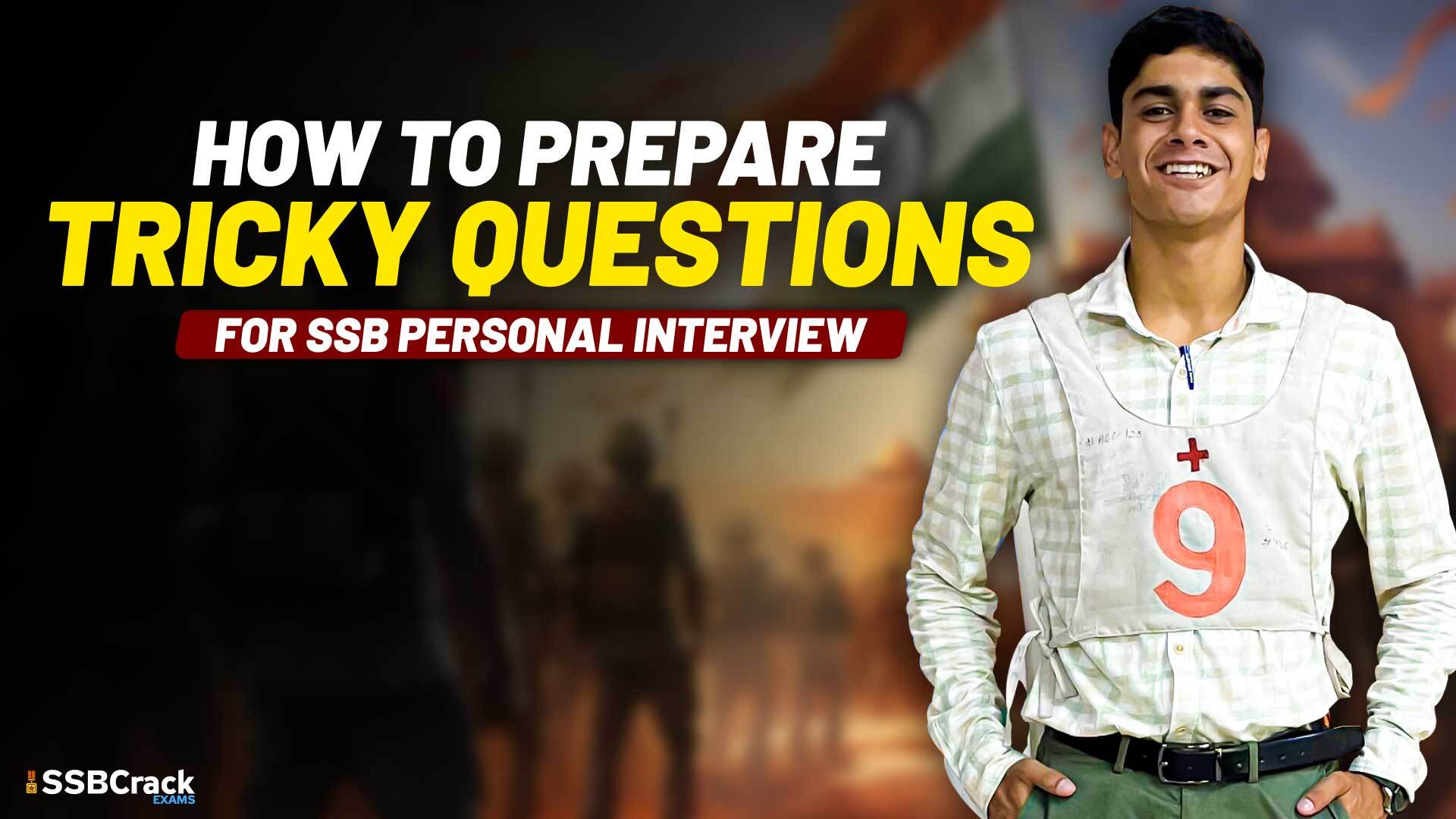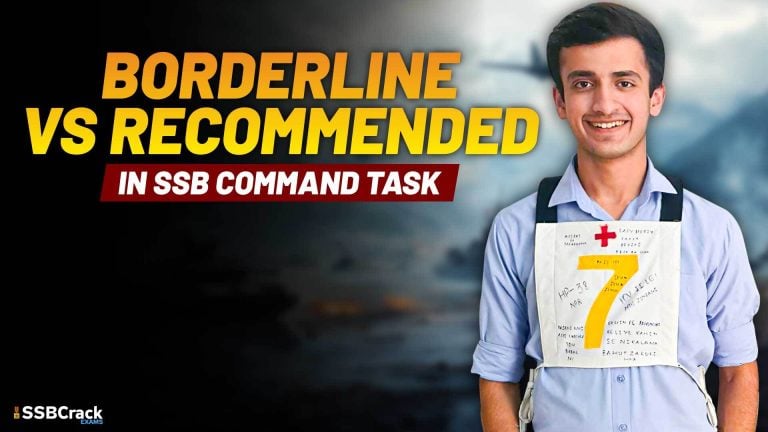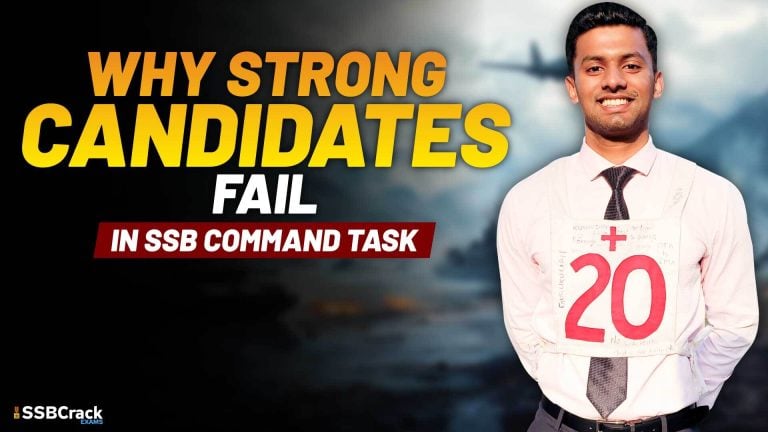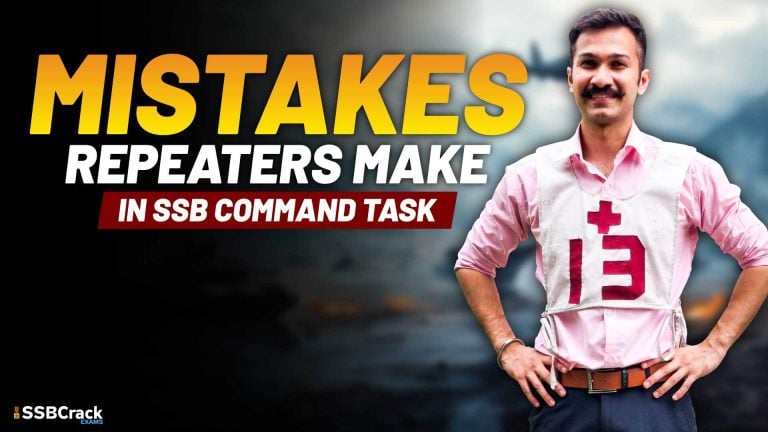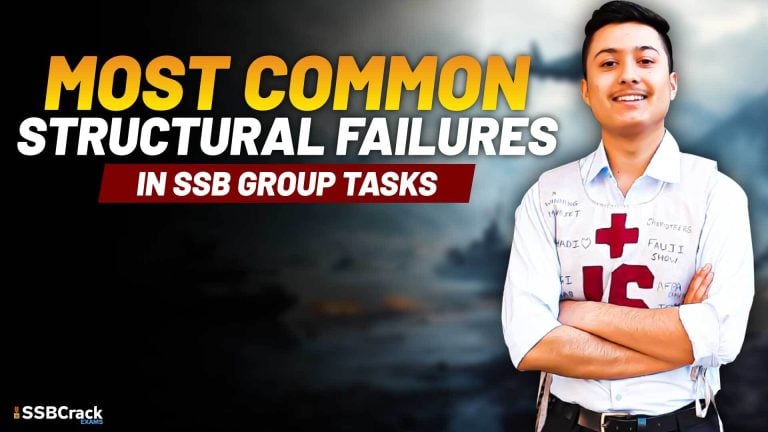Preparing for tricky questions in the SSB (Services Selection Board) Personal Interview requires self-awareness, clarity of thought, honesty, and presence of mind. Below is a detailed approach:
Understand the Nature of Tricky Questions
Tricky questions in SSB Interviews are designed to:
- Test honesty and consistency in your answers.
- Evaluate confidence and clarity of thought.
- Judge mental toughness under pressure.
- Assess self-awareness and problem-solving ability.
Examples of Tricky Questions:
- “Why should we select you over others?”
- “What is your biggest weakness?”
- “If not selected this time, what will you do?”
- “Your friend says you are short-tempered. What do you say?”
- “Why didn’t you join coaching if you are serious about defence?”
Preparation Format for Tricky Questions
Maintain a “Self-Questioning Notebook” with the following structure for each question:
(i) Question: Write the tricky question.
(ii) Core Idea of Answer: What is the main message you want to convey?
(iii) Supporting Points: 2–3 points/examples from real life.
(iv) Positive Spin: End with a constructive or optimistic note.
(v) Practice Response (30–60 sec): Frame your final answer in spoken form.
Sample Page (Example Question: “What is your biggest weakness?”)
Question: What is your biggest weakness?
Core Idea: I acknowledge my areas of improvement but actively work on them.
Supporting Points:
- I tend to overcommit at times because I am eager to contribute.
- Recently, I have started prioritizing tasks using a to-do list and deadlines.
Positive Spin: This approach has improved my efficiency and time management.
Practice Response:
“I used to overcommit myself because I was eager to take on responsibilities. But I realized that managing time and prioritizing tasks is crucial. I now maintain a daily planner, which has improved my output significantly. I consider it a learning process that makes me better each day.”
Practice Strategy (Daily Routine)
- List 20–30 possible tricky questions (about you, your academics, background, failures, career, etc.).
- Prepare short, structured answers using the above format.
- Practice aloud in front of a mirror for voice clarity, body language, and confidence.
- Record yourself on video/audio and self-evaluate.
- Take feedback from a friend, mentor, or trainer.
- Simulate pressure – Ask a friend to throw rapid-fire follow-up questions.
Key Tips While Answering in the Interview
- Be Honest: Never bluff; they will cross-check your answers.
- Stay Consistent: Answers should match your PIQ (Personal Information Questionnaire).
- Stay Calm: Pause, think for 2–3 seconds if needed, then answer.
- Show Learning Attitude: Convert negatives into opportunities for growth.
- Be Precise: Avoid long, rambling answers; be clear and to the point.
Common Areas to Prepare for Tricky Questions
- Personal Life: Family background, strengths/weaknesses, failures, achievements.
- Academics & Career: Subject knowledge, gaps in studies, career choice.
- Current Affairs & Defence Awareness: Opinions on national/international issues.
- Situational Questions: Ethical dilemmas, problem-solving in real-life situations.
